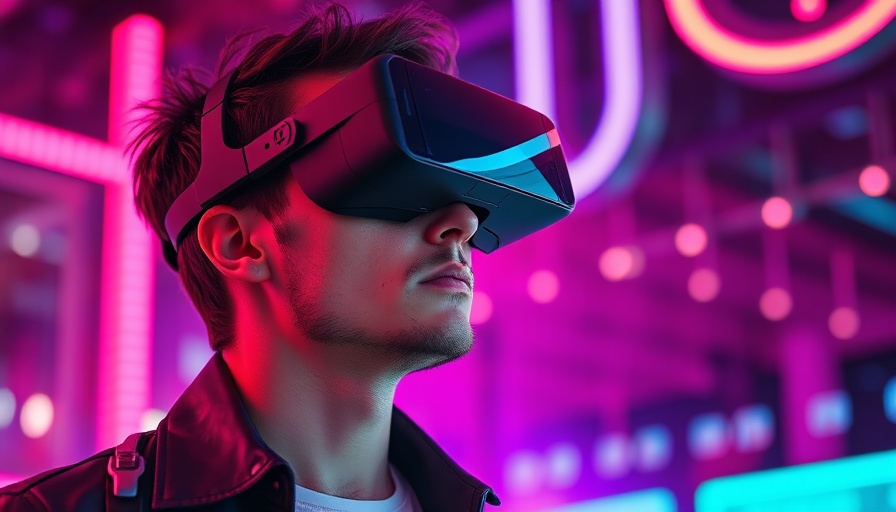
Understanding AI's Role in Cultural Media
The rise of Artificial Intelligence (AI) has transformed various sectors, yet its profound impact on cultural media warrants deeper discussions. AI is not merely a technological tool; it has the potential to reshape our cultural landscapes and the way we interact with media. As marketers and media professionals, understanding this shift can lead to innovative strategies that enhance audience engagement and brand identity.
The Intersection of AI and Culture
AI algorithms have far-reaching abilities to analyze data and forecast trends, but their cultural implications are often overlooked. As highlighted in recent academic research from Stanford University, people's cultural backgrounds significantly influence their preferences regarding AI.
For instance, individuals from independent cultural contexts, like those in many European societies, may favor AI that emphasizes user control and personal agency. In contrast, those from interdependent cultural backgrounds, like many Asian cultures, might prefer AI systems that foster a sense of connection and emotional engagement. As marketers, understanding these cultural dynamics is essential for creating culturally resonant content that connects with diverse audiences.
AI's Impact on Audience Engagement
AI technologies facilitate personalized communication, allowing brands to curate content that resonates more deeply with audience sentiments. For example, AI tools can analyze user data to segment audiences based on preferences, ensuring targeted messaging that increases engagement.
However, the deployment of such AI-driven strategies must consider ethical implications. Data privacy concerns and algorithmic biases can compromise audience trust. Businesses must prioritize transparency and responsible AI usage in their marketing campaigns to maintain and enhance brand reputation.
Strategic Marketing Integration with AI
Adopting AI in marketing strategies offers numerous benefits, such as optimized ad spending and improved conversion rates. For instance, programmatic advertising leverages AI for real-time bidding on ad inventory, ensuring that the right audience sees relevant ads when they are most likely to engage.
Furthermore, utilizing AI to analyze engagement metrics enables marketers to refine their campaigns continually. A/B testing supported by AI insights can lead to more informed decisions, giving brands a competitive edge in an increasingly crowded digital market.
Potential Challenges and Considerations
Despite the myriad advantages of integrating AI into cultural media strategies, businesses must remain cautious. The risk of over-reliance on automated systems can lead to a decrease in human oversight, potentially resulting in misguided messaging or misrepresentation of brand identity.
Moreover, ethical considerations must guide the use of AI in content creation. Concerns about misinformation and the dissemination of biased content need to be actively managed. Brands that navigate these challenges effectively will likely emerge as thought leaders in the AI-driven marketing landscape.
Future Predictions: The Role of AI in Cultural Communication
As we look ahead, the role of AI in shaping cultural communication will only grow. Its capacity to offer insights into cultural trends and audience behavior can foster more effective cross-cultural campaigns. Digital marketers need to remain agile, adapting their strategies to leverage AI’s capabilities while embracing the plurality of cultural perspectives.
The trend toward AI-driven content personalization suggests a future where brands are not just sellers but engaging storytellers that resonate culturally with their audiences. This evolution will redefine brand loyalty and community engagement, emphasizing the need for cultural empathy in digital marketing strategies.
Final Thoughts: Embracing Cultural Diversity in AI Strategies
For professionals, business owners, and marketers, embracing cultural diversity in AI strategies presents an opportunity to create more impactful connections with audiences. Understanding cultural preferences and values will be essential as businesses seek to leverage AI’s full potential in marketing. By doing so, they can navigate the complexities of an ever-evolving landscape and position their brands favorably in the eyes of diverse consumer groups.
If your business is ready to enhance its digital marketing strategies using AI, consider exploring cutting-edge technologies today. Engage with AI as not merely a tool but as a partner in creating culturally relevant content that resonates with your audience.
 Add Row
Add Row  Add
Add 




Write A Comment